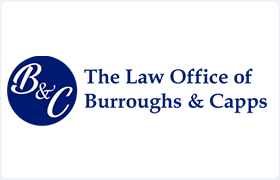Powell Child Custody Lawyer, Tennessee
Sponsored Law Firm
-
 x
x

Click For More Info:
-
The Law Office of Burroughs & Capps
9111 Cross Park Drive Suite E-100 Knoxville, TN 37923» view mapDivorce & Family Law We've Successfully Helped Thousands
At the Law Office of Burroughs & Capps, you will receive the quality representation and personal attention that you and your claim deserve.
800-682-8380
Includes: Guardianships & Conservatorships, Custody & Visitation
Christine Lynne Dummer
Welfare, Family Law, Divorce, Child Custody, Juvenile Law
Status: In Good Standing
Elizabeth Kennedybacon Meadows
Mediation, Child Custody, Civil Rights, Business
Status: In Good Standing
Luke Aaron Shipley
Divorce, Child Support, Child Custody, Divorce & Family Law
Status: In Good Standing
Adam Edwards
Child Support, Child Custody, Divorce & Family Law, Criminal
Status: In Good Standing Licensed: 13 Years
Robert Samuel English
Divorce & Family Law, Divorce, Child Custody, Lawsuit & Dispute
Status: In Good Standing
David F. Peeples
Family Law, Juvenile Law, Divorce, Child Custody
Status: In Good Standing Licensed: 12 Years
 Bryan Capps Knoxville, TN
Bryan Capps Knoxville, TN Practice AreasExpertise
Practice AreasExpertise
